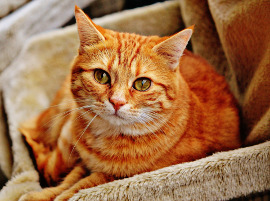 Many cats will experience urinary tract problems in their lifetime. This can be an incredibly painful ordeal, and can be fatal if left untreated.
Many cats will experience urinary tract problems in their lifetime. This can be an incredibly painful ordeal, and can be fatal if left untreated.
While there are many reasons as to why this happens, one thing is clear: taking preventive measures to ensure long-term urinary health is essential.
From diet and supplementation to maintaining a healthy lifestyle, there are many things you can do to ensure your kitty has a strong and healthy urinary tract for years to come.
The symptoms of poor urinary health are sometimes difficult to observe, as cats are well-known for concealing their discomfort. This makes early detection challenging as subtle changes in litter box behaviour often go unnoticed.
One of the first things to consider is water intake. Most cats do not drink enough water throughout the day as they have a naturally low thirst drive. Also, many cats – especially those on a dry, kibble-based diet, may not get enough water from the foods they eat. A cat in a state of prolonged dehydration can quickly develop long-term health problems.
To encourage your kitty to drink more water, try getting a little creative. Offer a recirculating water fountain instead of a traditional stand-alone water dish. Cats are naturally attracted to moving water, and a recirculating water fountain will encourage kitties to investigate. With increased interest comes increased water consumption which will benefit the urinary tract, kidneys, skin and coat, and more.
Instead of providing only one water source, offering multiple fresh water stations around the home is a great idea. This will give your cats several opportunities throughout the day to drink from different locations. Not only will this pique their interest, but it also acts as a clear reminder to have a drink. Overall, this strategy can greatly contribute to healthy, plentiful water consumption.
Ensure the water your pet is drinking is also safe for human consumption. Refresh their water dishes throughout the day, too. Just like humans, cats do not like drinking stale, dirty, or warm water.
It is also important to note that overweight cats are at greater risk for urinary health complications. The same is true for cats who experience high levels of stress or anxiety, as cats commonly internalize stress in their urinary tract, which can lead to inflammation.
Provide enough litter boxes for all of the cats in your home, as certain cats may be territorial or possessive with their litter box, preventing others from using it. This may result in a less dominant cat holding in their urine for prolonged periods of time, or finding an alternate place to pee.
Just as they can help human urinary health, cranberries are very beneficial for our feline friends, too. In addition to their water station, try offering a small dish with real cranberry juice and see how your cat responds. Many cats actually enjoy the taste of real cranberry juice. While it may take some time for your cats to get used to, try offering it a couple of times a week. Eventually they may grow to love this healthful treat. You may also use dried cranberry or blueberry powder and add that to your cat’s diet as a urinary supplement.
Selecting a proper diet is also critical for proper urinary function. Raw food and canned foods are most ideal for cats, since they contain high levels of moisture. Although, many high quality kibbles are equally as desirable – as long as your cat is drinking plenty of water. You may also add some warm water to kibble to add extra moisture; let it sit for a few minutes to properly hydrate before offering it to your kitty.
For overall wellness, including urinary tract health, it’s best to avoid foods and treats that are high in sodium, or those that are made with low-quality ingredients.
If you suspect your cat is exhibiting any signs pertaining to urinary health problems, consult your veterinarian immediately. Symptoms may include frequent trips to the litter box, straining to urinate, yowling or making other pain-indicating sounds white urinating, only urinating small amounts at a time, no longer using the litter box, unexplained blood in the urine, or more.
Brandon Forder – also known as The Pet Expert – is vice-president of Canadian Pet Connection, a family-owned and -operated business located in Meaford. He has over twenty years’ experience specializing in pet nutrition, behaviour, and lifestyle. Canadian Pet Connection is an industry leader committed to providing their clients with the highest levels of personal, attentive service.











